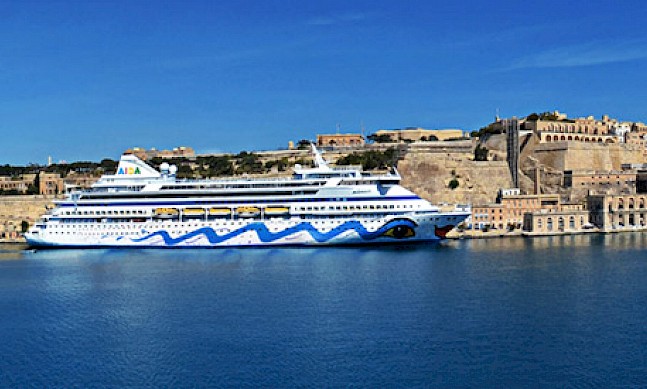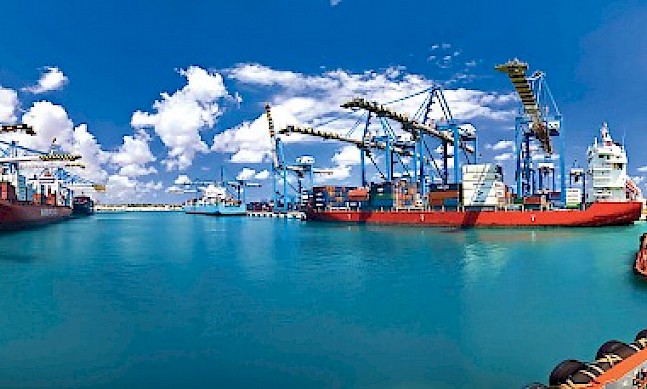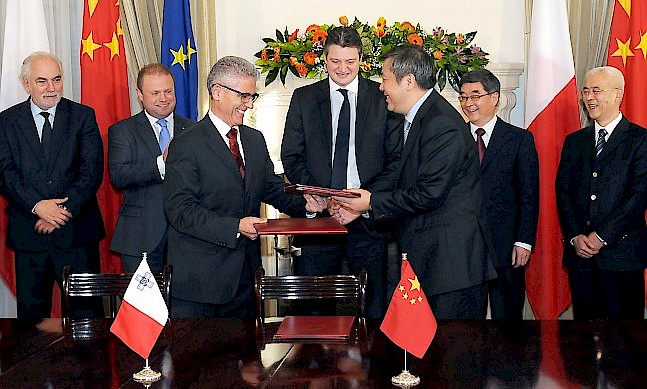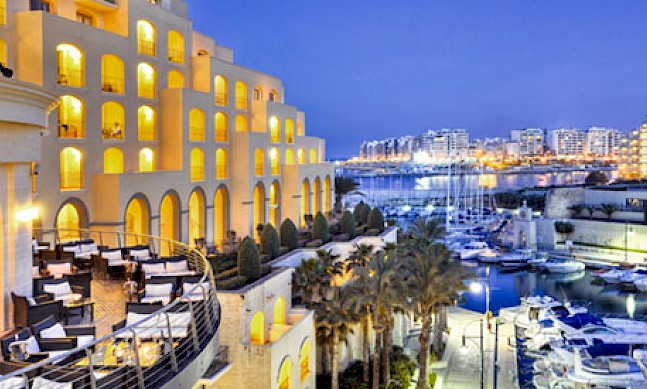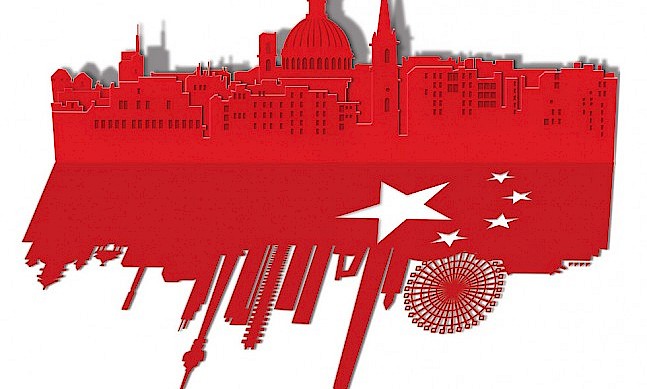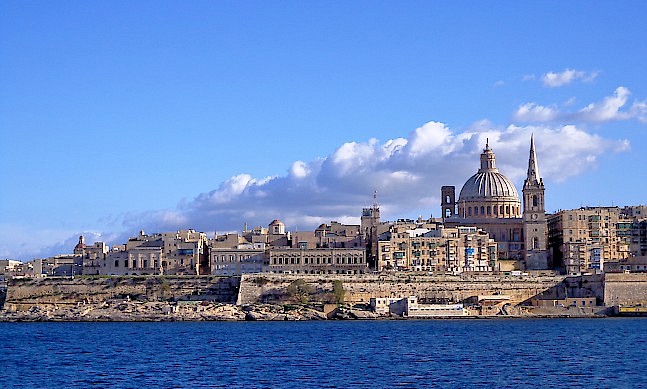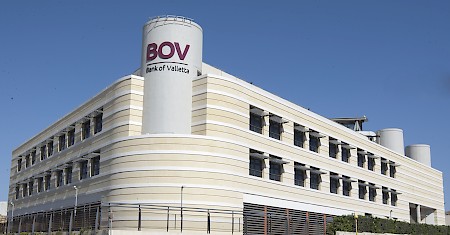 Bank of Valetta
Bank of Valetta
Malta took a more judicious approach to its banking and finance industry than its Mediterranean and European neighbours. It now stands out as an oasis of financial calm and stability.
Thanks to the prudent and conservative nature of the Maltese financial sector and its regulator, Malta’s banking sector remained relatively untainted by the financial crisis. In fact, the past five years have seen double-digit growth across the five key pillars of the sector; insurance and pensions, investment funds and asset management, credit and financial institutions, trusts and foundations, and wealth management – an impressive feat for Europe’s smallest economy.
“As a small island, even the smallest shock could rattle the economy,” cautions Edward Scicluna, minister for finance. “When the crisis came we were pleased that Malta got out of it unscathed.”
The World Economic Forum’s Global Competitiveness Report 2013-2014 placed Malta in the top 20 financial services jurisdictions out of 148 countries, ranking its bank soundness at 14th place.
“We have built a solid infrastructure for financial services in Malta,” adds Scicluna, who previously chaired the state regulator, Malta Financial Services Authority (MFSA). “We grew a bit slower perhaps than close competitors but with hindsight, we did the right thing.”
This solid foundation began to be laid in the 1980s and 1990s as the country geared up for its entry into the European Union, in 2004, by streamlining and reforming legislation to accommodate its new membership. The banking sector in particular had its reins loosened as it moved from a closely-regulated public sector-owned operation into a highly open sector that allowed foreign ownership.
The largest local bank, the Bank of Valletta, long a pillar in the Maltese economy and financial sector, played an important role in Malta’s weathering of the financial storm.
“The banks have remained cash-rich,” says Charles Borg, the bank’s CEO. “To me, that was one of the major successes we had.”
Today, the tier one regulatory capital of the domestic banking sector sits at 10.3 percent, almost double the required rate set by the Basel III accord (the international regulatory framework for banks).
“We have structures for Chinese companies who use Malta in their international structuring for financing and leasing activities.”
Andre Zarb Partner at KPMG
Post ThisInnovation through regulation
Heading the MFSA is the architect of Malta’s modern financial system, Joseph Bannister, who has helped oversee 25 percent annual growth in financial services. In 1995 Malta had just one investment fund, while by the end of 2013, 600 investment funds were authorised by the MFSA, including an additional 27 fund administrators and 123 investment management service providers.
Part of this success can be attributed to a strong and diligent framework that also remains flexible and in touch with the sector. “Practitioners provide valid input to the government to enact changes and make improvements to our legislative and regulatory framework,” explains Brian Tonna, managing partner of the largest local accounting and audit firm, Nexia BT Group. “This helps to keep Malta on the cutting edge in the industry.”
An active approach by the regulator has led to the reintroduction of reinsurance special purpose vehicles, the introduction of protected cell companies (PCCs) which have been extended to investment funds, and in the future securitisation vehicles. A new exchange has also been established to deal exclusively with wholesale capital markets – the European Wholesale Securities Market.
“Now we are taking steps to limit liability,” adds Bannister. “It’s a bit of a long-haul but this is where the regulator is being proactive and innovative to try and find some new solutions and not generate new problems.”
Apart from offering tailor-made solutions, Malta’s other big sell for the sector is its relatively low cost levels. According to KPMG, Malta’s cost of business is about 50 percent or less than in Frankfurt, Paris or London.
“Malta ranks very highly not just in terms of its competiveness insofar as operational costs are concerned,” confirms Kenneth Farrugia, chairman of FinanceMalta, the Maltese financial promotion body. “But equally in terms of the value for money when one considers the skills and expertise present in the market such as audit, legal and other support services.”
To ensure support services remain top class, the regulator established an education consultative council formed by the main stakeholders in finance and education.
“You find professionals here who are of the same calibre as you would find in London, in Geneva, in the main financial services market,” says Andre Zarb, partner at KPMG.
“Historically we have been a melting pot and that has fed into our legal framework. We have trusts and foundations operating side-by-side, which are common law and civil law concepts.”
Simon Xuereb Senior manager at KPMG
Post ThisIndustry buzz
Brian Tonna
Managing Partner of Nexia BT
"Our clients vary from the small local entrepreneur to listed companies, high net worth individuals, and large international group structures. We have always strived to provide all our clients with the same level of service. It is by professionally promoting Malta across the globe that will make sure the international client sees in Malta a solid and dependable platform from where to do business."
Joe Bannister
Chairman of MFSA
"Statistics published recently show that over the past three years, 80 percent of the foreign direct investment into Malta has been in financial services. We have introduced new areas of activities because we tend to do innovation through regulation. We have introduced reinsurance special purpose vehicles and this will lead to the introduction of the capital mwarkets, not simply for insurance but for the whole sector."
Paul Spiteri
Chairman of Malta Stock Exchange
"The exchange is helping the economy because it’s mopping up savings and translating them into investment. We have set our objective to be amongst the top three European stock exchanges catering for small to medium sized enterprises by the end of the decade. We have introduced a trading engine from Deutsche Boerse in Frankfurt and we are linked with Clearstream for our clearing and settlement. We have the infrastructure in place."
Kenneth Farrugia
Chairman of Finance Malta
"Malta is on the lookout to attract Chinese financial services business since financial services in China have reached a global level-playing field. Such a development would boost Malta’s attractiveness to Chinese investment in the region, and boost the Renminbi (RMB) as an international currency."


